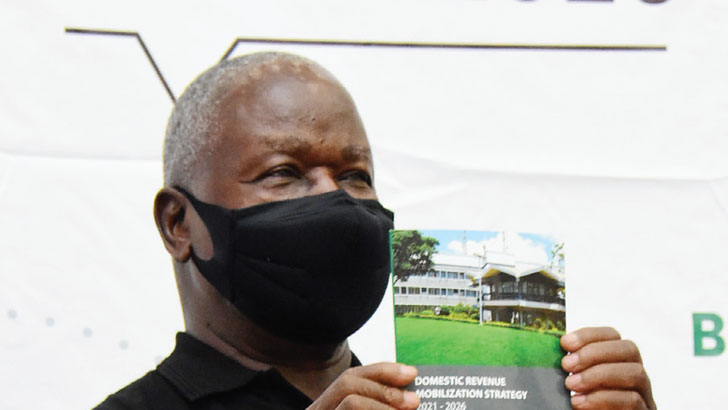Ministry targets 19% revenue-GDP ratio
Minister of Finance Felix Mlusu yesterday launched the Domestic Revenue Mobilisation Strategy expected to guide the implementation of tax and non-tax policy as well as tax administration for the next five years.
The strategy, which runs from 2021 to 2026, aims to increase the ratio of the country’s domestic revenue to gross domestic product (GDP) from the current 14 percent to 19 percent in the next five years.

This means that the strategy, which also aims to reduce tax compliance cost and create a predictable system, is targeting to grow domestic revenue by an average of five percent in the next five years.
Speaking during the launch in Lilongwe, Mlusu said tax measures implemented over the years have focused on short-term gains, with little regard to medium-term development considerations.
“While short-term revenue mobilisation efforts have enjoyed some improvements, these have remained below the country’s potential,” he said.
Mlusu said the strategy is also designed to support the goals espoused in the Malawi 2063 and its first 10-year implementation plan, which seek to create an inclusively wealthy and self-reliant nation.
National Planning Commission director general Thomas Chataghalala Munthali said the document has been launched at a critical time the country is devising ways and means of mobilising resources to finance the Malawi 2063 (MW2063), the country’s long-term development blueprint.
It is estimated that MW2063 requires an estimated $15 billion (about K12 trillion) to finance its implementation between now and 2030.
In a separate interview, Malawi Revenue Authority board chairperson Vizenge Kumwenda, who is also Nico Holdings plc managing director, described the strategy as a milestone in the history of revenue collection agency.
“This is a first-ever strategy to help mobilise domestic revenue. It will create a framework on how we are going to to do our work in mobilising revenue,” he said.
Meanwhile, the strategy has identified key areas to enhance revenue collection and these include automation and modernisation of tax and non-tax revenue policy and collection systems at the national and local levels.
It also seeks to widen the tax base, build a culture of tax compliance among all citizens through strengthening enforcement, simplifying tax laws and improving transparency and developing professionalism, skills and tools for tax policy analysis and reforms for the tax administration.
The strategy is also touted as a potential tool to reduce Malawi’s public debt burden, which is estimated to have soared to K5.5 trillion or 59 percent of GDP as of June 2021, up from K4.1 trillion or 48 percent of GDP in June 2020.
Malawi’s domestic revenue ratio to GDP was 13.4 percent for the 2019/20 financial year. Such a rate was the lowest in the region and compared negatively to the Sub-Saharan average of 16 percent





